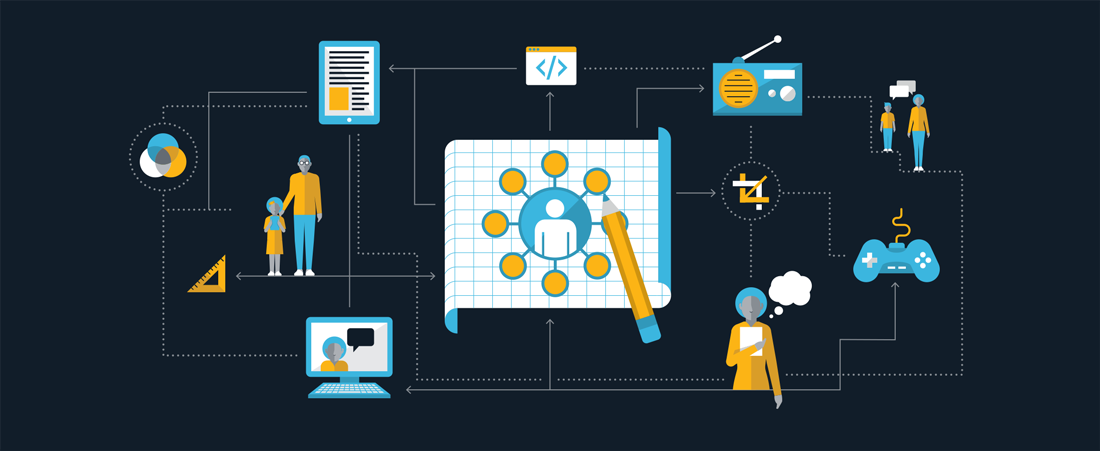
EDC’s collaborative process brings together scientists, researchers, educators, creative artists, media and technology specialists, and intended users—from young children to the elderly—to design, test, refine, and disseminate high-quality curricula, trainings, interventions, and other resources.
We create professional development and continuing education programs for busy practitioners, open-source online courses that reach hundreds of thousands of budding entrepreneurs around the world, and digital tools and applications that promote basic literacy and health.
Our work demonstrates that the best learning integrates knowledge and experience to empower individuals with critical skills and to achieve sustainable improvements in services and systems.
Learn about EDC’s work to strengthen early childhood interventions with Continuous Quality Improvement.
Resources
Designed by EDC and the Ford Motor Company Fund, the Ford Next Generation Learning (NGL) initiative includes an interdisciplinary high school curriculum, professional development, and a successful
This report looks at the sustained effect of EDC’s Zanzibar RISE and ZTUR programs for children and teachers, including institutionalization and expansion by the government of Zanzibar and a sustained learning advantage for children who participated in the programs.
The Children’s Safety Network (CSN) is a national resource center for the prevention of childhood injuries and violence.
This report summarizes the results of a review, conducted by external experts, of the quality and content of the Out-of-School Literacy Assessment (OLA).
This three-part series, funded by the National Science Foundation, features engaging activities that bring middle school youth outdoors to explore the natural world using observation, digital photo
This guide helps school districts choose the computer science (CS) curricula that best suit their communities’ needs.
This brief describes the importance of expanding access to computer science (CS) learning and details EDC’s work to ensure all students have high-quality CS educations.
Transition to Algebra is a full-year curriculum designed by EDC to run concurrently with first-year algebra to raise the competence and confidence of students who may benefit from supports
Instructional strategies that facilitate access to language and participation in mathematical discussions are essential to promote equitable learning opportunities for multilingual learners in the
These three, free interactive puzzles—“Mobiles,” “Who Am I?,” and “Mystery Grid”—are popular with young people, families, and educators across the U.S. and around the world.